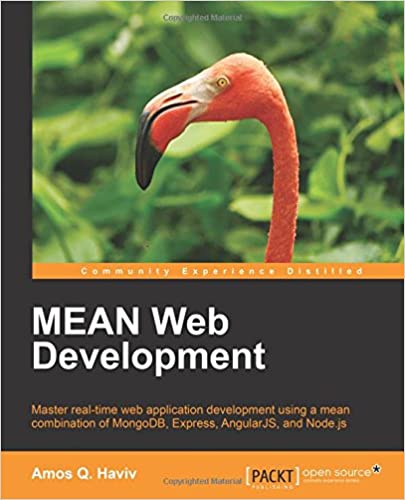; Date: Thu Jan 04 2018
Tags: Blockchain »»»» Monetary System »»»» Currencies »»»»
Certain countries, like Russia and Venezuela, are under economic sanctions over actions the so-called World Community deem to be crimes, such as Russia's take-over of Crimea. Such countries would of course be looking for ways to escape the sanctions so they can act freely. According to an NY Times report, both Russia and Venezuela are looking at creating government-backed cryptocurrencies that can be used for international financial transactions outside the normal financial system. They're clearly not planning to adopt an existing cryptocurrency, but to set up government-controlled currencies that just happen to operate over the Internet and use cryptographic controls. Cryptocurrency (Bitcoin, Ethereum, etc) proponents have been pursuing a libertarian-paradise dream of a completely open currency outside government control that is safer than so-called fiat currencies. Regular currencies have designed-in periodic economic crashes, built into the core design of the currencies, and cryptocurrencies are free from such problems. But ... will Governments allow such activities to become significant and take over the actual economy? Most likely not, and the most likely result is for Big Corporate and Big Government institutions to adopt blockchain/cryptocurrency technologies while outlawing the existing currencies.

According to the NY Times, both Russia and Venezuela are looking to create cryptocurrencies as "a new kind of money and financial infrastructure, outside the control of any central authority, particularly the United States." Both countries are under economic sanctions which currently limit their freedom to make deals and move money through international markets.
And, it's not just those two countries:
-
bankofengland.co.uk research digital-currencies The Bank of England
-
caixinglobal.com 2017-01-26 101049103.html The Peoples Bank of China have conducted a successful trial run of "a digital bank acceptance exchange" and is "moving closer to becoming the first central bank in the world to research and test its own digital currency."
In Venezuela the idea came directly from President Nicolás Maduro, with a plan to create a homegrown digital currency known as the Petro that will be backed by Venezuela's oil and natural resources. Venezuela has one of the worlds largest oil reserves and could be immensely rich ... but for some reason I'm not aware of, that country is under some economic sanctions.
In Russia, "officials under Vladimir Putin" are floating the idea of a so-called "crypto ruble." Given the tight control Putin has over things, especially currency things, any such idea would have to be under his approval.
-
ria.ru economy 20171212 1510774352.html (in Russian) Presidential aide Sergei Glazyev says cryptocurrencies need to be introduced into Russian legislation. Glazyev: "There is an objective need for this tool, connected, firstly, with the fact that banks are subject to sanctions and do not want to make calculations on sensitive activities for the state."
-
https://www.kommersant.ru/doc/3494552 ... ditto
-
https://www.kommersant.ru/doc/3448390 Vladimir Putin orders the government and the Central Bank to ensure the introduction of changes to the legislation aimed at regulating the crypto-currency industry, as well as new digital technologies. Requires changes by July 1, 2018, allowing ICO public offerings and other cryptocurrency activity. Official text of order: kremlin.ru acts assignments orders 55899
-
https://www.kommersant.ru/doc/3488234 Finance ministry is proposing to criminilize settling financial transactions in cryptocurrencies - because the principle is that all transactions in Russia must be conducted in Rubles.
-
rns.online finance Glazev-dopustil-ispolzovanie-kriptovalyut-dlya-obhoda-sanktsii-2017-12-12 Says that Glazyev is looking to use cryptocurrencies to circumvent external restrictions
-
http://tass.com/economy/969777 Russia's Central Bank declares it seeks to close access to cryptocurrency exchange websites by Russian citizens and otherwise restrict cryptocurrency sales.
-
kremlin.ru events president news 55813 Vladimir Putin made a statement that cryptocurrencies are problematic because "this is an opportunity for laundering illegal gains, tax evasion and even financing of terrorism, not to mention the proliferation scams to which ordinary people can fall victim." At the same time, Putin is looking for a way to integrate cryptocurrency in a legal way
-
ria.ru economy 20170602 1495675131.html Russia's Central Bank began work on creation of a national digital currency
-
aif.ru money economy rossiya vypustit sobstvennuyu kriptovalyutu ministr svyazi Russia will issue its own cryptocurrency
-
bloomberg.com news articles 2017-06-06 putin-eyes-bitcoin-rival-to-spur-economic-growth-beyond-oil-gas Putin met the founder of Ethereum, Vitalik Buterin, who holds Russia/Canada dual citizenship, about cryptocurrency adoption. This article also says certain Russian banks, including VEB (that's tightly controlled by Putin for his personal money laundering needs), are researching Ethereum.
These things taken together demonstrate one of the claims in the NY Times article. On the one hand both Venezuela and Russia are prohibiting its citizens from using existing cryptocurrencies like Bitcoin, but both are looking to embrace some kind of cryptocurrency.
It's predicted that the nature of cryptocurrencies mean government-backed efforts won't produce the results expected by the governments. That's because "virtual currencies are decentralized systems with no one in charge", but governments being governments they'll try to design their digital currencies to maintain governmental control.
In a blockchain system, transactions are conducted without passing through a central bank.
That's what makes cryptocurrencies attractive for avoiding economic sanctions. Those sanctions are implemented with rules installed in the banking system.
In Venezuela, the government has created an Office of Cryptocurrency Superintendent to oversee cryptocurrency research and implementation. Petro's, the units issued by the planned cryptocurrency, will be backed by the Venezuela governments "natural resources" (a.k.a. crude oil).
treasury.gov press-center press-releases Pages jl236.aspx In 2014 the US Treasury said were not seeing, at that time, widespread efforts to circumvent sanctions through cryptocurrencies.
Source:
nytimes.com 2018 01 03 technology russia-venezuela-virtual-currencies.html











